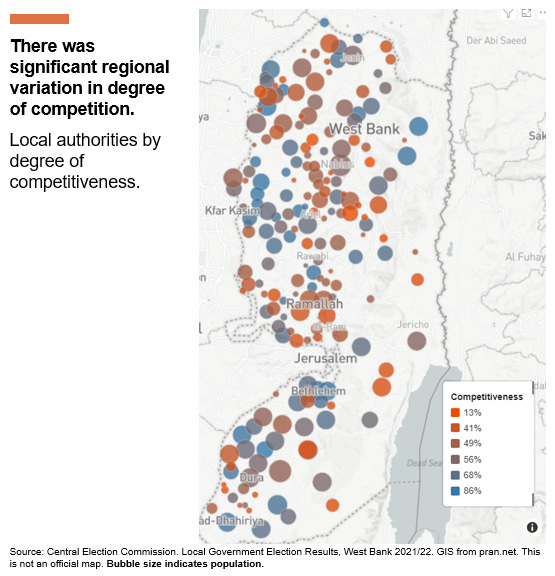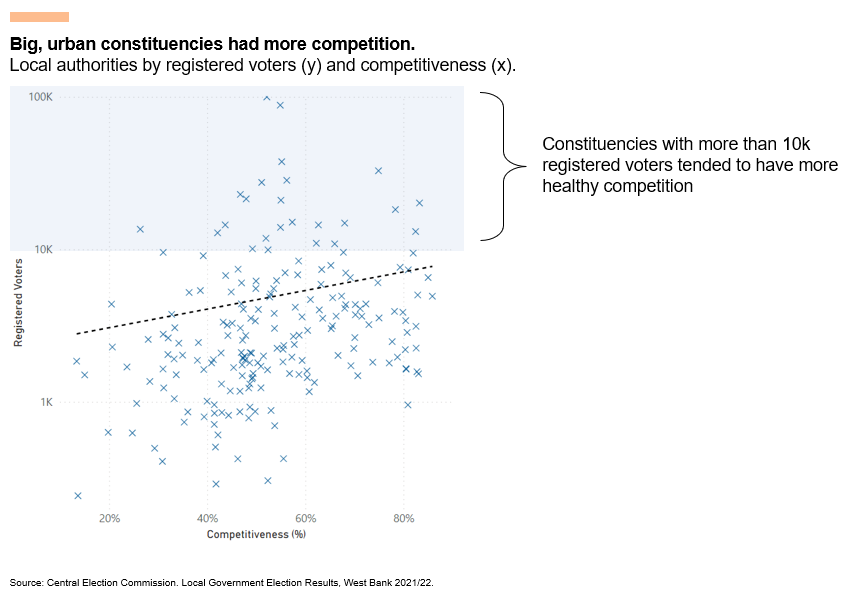The Weekly: Competition in Local Politics
An update on Democracy & Elections in Palestine, from the UNDP PAPP Elections and Democratization project.
Our Inbox:
Al-Monitor suggests that succession politics are contributing to insecurity in the West Bank. TOI, Axios, and Haaretz covered Israeli security chiefs warning of the collapse of PA legitimacy.
The JCPA (an Israeli think-tank) published a piece on the succession which asserts that 1) there will be an internal election within Fatah, and 2) al-Sheikh is preparing to win it through manipulation of the ‘selectorate’ (the Fatah Central and General Committees). The latter should in theory elect any future leader of the movement, while the former would be likely to choose any future Fatah candidate for PLO leadership.
The PM Shtayyeh continues to assert that in-person voting in East Jerusalem is hampering a return to democracy. The Aman coalition, a civil society transparency group, called again for general elections.
Datapoint: Competition in Local Politics
Palestinians have voted thrice for local leaders since Oslo - giving local governments in the West Bank a democratic gravitas that the PA sorely lacks. As much international assistance has pivoted towards local governments, it’s interesting to explore how well local democracy actually works.
One way of looking at this is through the lens of competition. A competitive election is one in which the outcome is uncertain. We built a new index to measure this for the last cycle (2021/22) of local polls, and the results are worrying. Most local government races were unopposed, and those in which elections were held tended to be won by majorities (often whopping great majorities).
Competition varies pretty substantially across the West Bank and appears to be driven more by local dynamics with some highly-competitive regions northwest of Ramallah, and around Bethlehem.
Once you adjust for population, the situation is a bit rosier. Populous urban areas - where most Palestinians live - tend to be more competitive than rural ones.
What’s reducing competition? One of the biggest drivers appears to be intimidation. The Bisan Center for Research and Development will shortly release a report that documents the use of violence and threats to reduce political competition. Bisan found that many potential candidates (particularly women and youth) and lists were effectively removed from contestation when they were made an offer they couldn’t refuse. Hamas officially boycotted these elections, which also likely reduced competition.
What can we do about it? Supporting crucial reforms on ballot access and freedoms of association could help broaden the political spectrum. Likewise, there is quite robust evidence that programming on electoral violence and intimidation works.
Thanks for reading!



